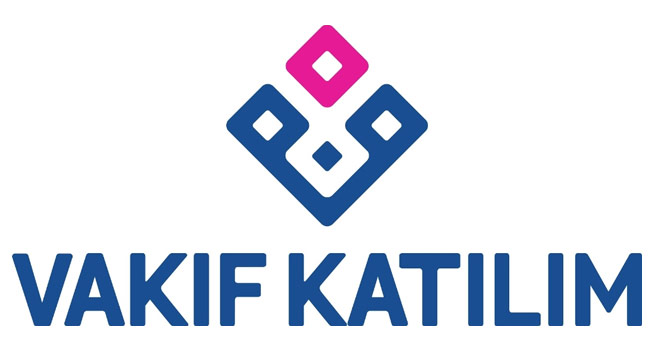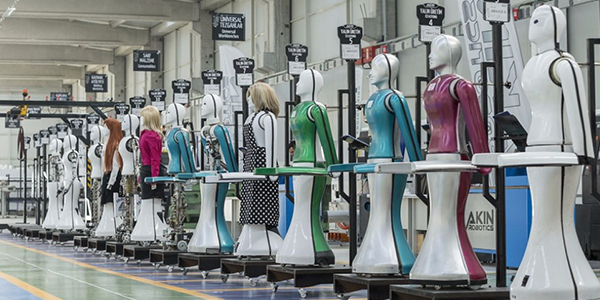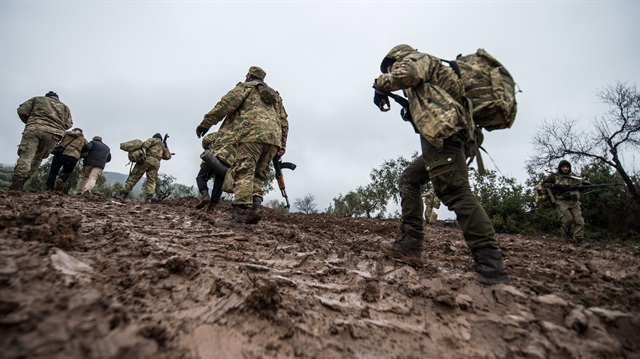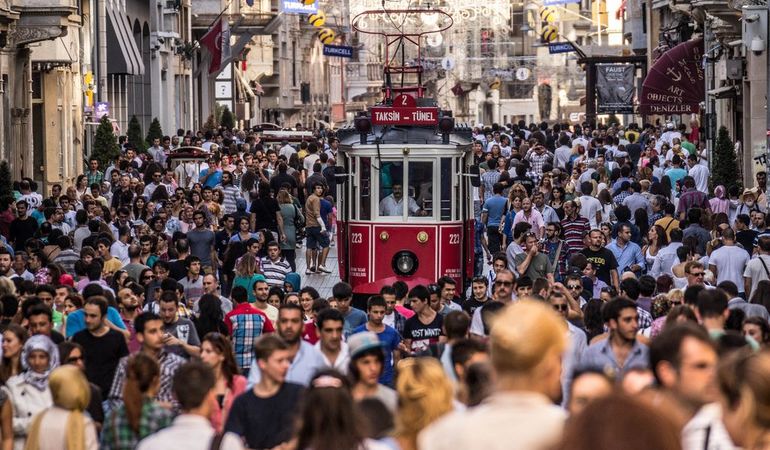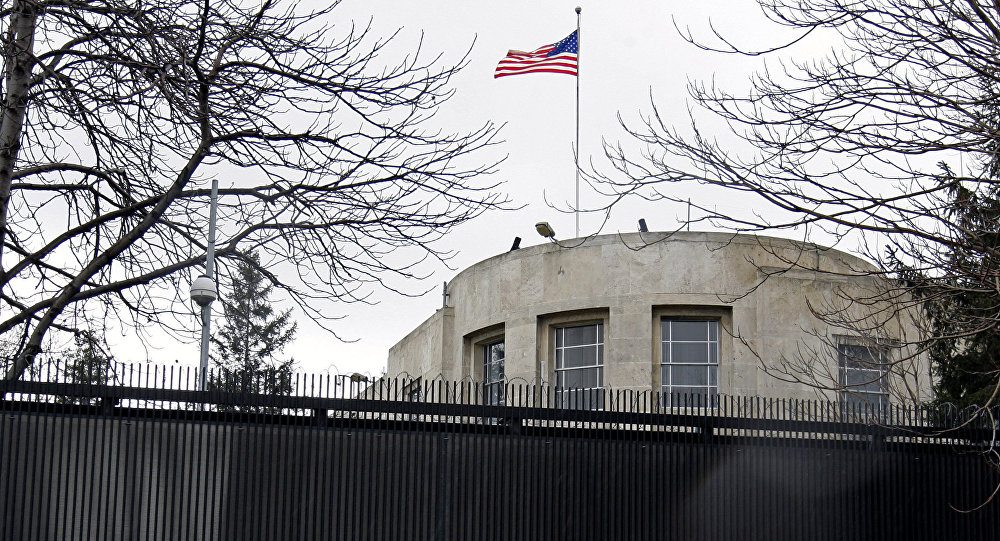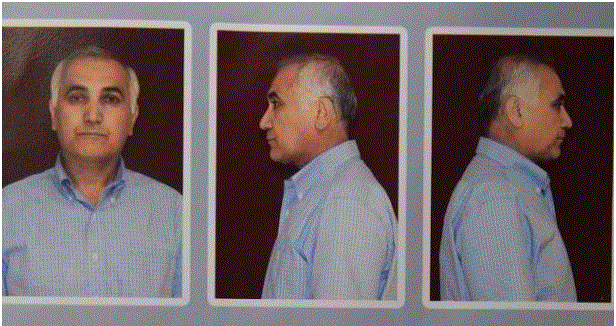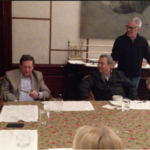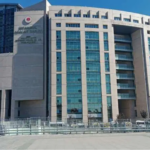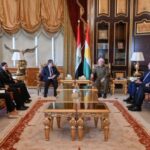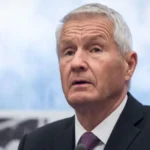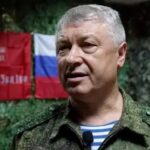The PKK are armed Maoist guerillas.
That means that the PKK are violent insurrectionists armed not only with AK-47s, but also with a hodgepodge of ethno-nationalist Marxist-Leninist ideology. Like the Shining Path. Like Tupac Amaru. Like FARC. Their cousins are ETA and the IRA. And many others.
Clearly, other confusions are also present in Western press narratives on the PKK. The PKK is not a single monolithic organization. The Kurds in control of Rojava, the PYD? They are a branch of the PKK. The Kurdish political party, the HDP, elected to the Turkish parliament in last month’s elections? They are the PKK’s political arm, and play a role comparable to that played by Sinn Fein for the IRA. Except that the military-civilian relationship is reversed; here it is the armed organization that fully controls the civilian wing.
And all of this is wrapped up in why the Rojava militants talk about the “Rojava Revolution.” Actually most Westerners probably have not heard of the “Rojava Revolution” because the mainstream Western press generally neglects to translate this and many other phrases or acronyms into English, or to include them in their reports (as, for example, Ceylan Yeğinsu (1), as well as Şebnem Arsu; may your ears be buzzing). Such omissions extend to the most “interesting” things that the HDP or the leaders of the Rojava Kurds say. I understand why there is confusion in the minds of Westerners when they never see the actual rhetoric used by the HDP’s leaders.
Take, for example, these comments by HDP co-chair Selahattin Demirtaş, one of the co-leaders of the HDP, made several hours after the Suruç bombing. No mainstream Western publication that I know of took the trouble to translate Demirtaş’s words into English for their readers (though Ceren Kenar put them on twitter):
Today in Suruç we witnessed yet again what this army [IS] dedicated to rape and barbarity, having lost all traces of humanity, is capable of. Especially because it occurred right after the first anniversary of the Rojava Revolution, and it targeted Turkish revolutionaries who had embarked on a journey of solidarity with Kobani, [this attack] is an effort to break the international solidarity supporting Kobani. This attack is an attempt to send a “stop this solidarity” message to the brave people who are united in a spirit of revolutionary solidarity with Kobani. (2)
I imagine there may be some raised eyebrows among the readers of this column. “Turkish revolutionaries”? “Brave people who are united in a spirit of revolutionary solidarity”? But this sort of revolutionary jargon happens to be regular fare for the HDP’s various public figures. Demirtaş went on to blame the AKP for the Suruç bombing, and then called on his constituency to prepare for “self-defence,” which is always generally understood as a call to violence. And sure enough, the violence did begin within a few hours.
The worst part is that Demirtaş has been saying such provocative things since last Fall. An earlier call from him for the Kurdish people to “take to the streets” constituted the direct signal and incitement for the 6-8 October 2014 burst of violence that took more than 50 lives (with the PKK killing non-PKK Kurds most of the time). But subsequently, neither the Western press nor Western politicians called for Demirtaş to account for his statements or questioned him on his role in provoking that violence. Thus he has felt free, even encouraged to continue.
Also consider this: On Wednesday (22 July) the U.S. Ankara Embassy issued two tweets on the violence of the previous two days. The second was a condemnation identifying IS as the perpetrator of the Monday Suruç bombing (even though IS had not claimed responsibility). The first was a condemnation of the murders of two police officers in Ceylanpınar that neglected to mention the PKK even though the PKK had actually claimed the murders. The implications of that oversight by the Ankara U.S. Embassy are disturbing. Could it have been just a mistake?
Because the various branches of the PKK have not received pressure from Western governments to disarm, and instead have even received arms shipments during the Rojava/Kobane siege of Fall 2014, they appear to have felt less inclined to curb their activities. And for posterity, when the Obama Administration air-dropped arms for the Rojava Kurds in October 2014, they were supplying arms to a group that the U.S. has listed as a “terrorist organization” because the Kurdish militants in Rojava (and in control of Rojava) are a branch of the PKK.
For further clarification, since NYT reporters and editors have so far been able to bring themselves only to using the term “left-wing militant[s]” in a single picture caption at the very end of a long report on the past week’s incidents in Turkey, here are the English translations of the names of some of the groups involved in the current situation.
The group attacked by IS on Monday, 20th July, is the Sosyalist Gençlik Dernekleri Federasyonu (SGDP), which means the Federation of Socialist Youth Associations. The SGDF is the youth organization of another Marxist-Leninist organization called Ezilenlerin Sosyalist Partisi (ESP), which translates as the Socialist Party of the Oppressed. In turn, the ESP appears to be a legal political front for another Turkish militant leftist organization, one that has always been illegal, clandestine, armed and committed to the armed struggle — the Marksist-Leninist Komünist Partisi (MLKP). Even though a translation is not really necessary, that’s the Marxist-Leninist Communist Party. The MLKP is the group that left a bomb outside of the pro-AKP Star Gazetesi on Friday, 24th July 2015.
Back to the ESP. With all its MLKP connections, this is one of the groups that have come together to form the Halkların Demokratik Partisi (HDP), i.e. the Peoples’ Democratic Party. Yes, this is the same HDP that is mentioned in the press on a daily basis, and which is generally understood as a Kurdish party, and which has just put eighty deputies into the Turkish parliament. In symbolic recognition of the contribution of the socially very marginal but quite violently inclined Turkish militant left to the Kurdish nationalist cause, Figen Yüksekdağ, a founder and former leader of the ESP, has been made one of the two co-chairs of the HDP.
So to make all of this absolutely clear, the HDP, recently elected with no fewer than eighty deputies to the Turkish parliament, is connected directly through its leaders as well as its rank and file to militant leftist organizations that include the PKK (above) and the ESP (alongside). Why would IS have targeted them? The MLKP had sent militants to fight in Kobane against IS (the MLKP even has its own Rojava twitter feed). Those MLKP militants were joining forces with local Kurdish militants also connected to the PKK. In fact the PYD, the Kurdish leftist militant organization controlling Kobane, is the Northern Syrian branch of the PKK. Suruç is only five kilometres from the Turkish border crossing into Kobane.
One point that needs to be emphasized in the context of any discussion of the HDP’s ties to these and other militant groups is that the HDP represents only a portion of the Kurdish population in Turkey. In fact, it is doubtful whether the HDP receives the votes of even half the Kurds in Turkey. The six million people who voted for the HDP last month, and which represented a dramatic increase in the party’s electoral support, were certainly not only Kurdish, but also many leftist Turks who for once switched over from the CHP. Additionally, many of the Kurds that did vote for the HDP had previously voted for the AKP, so they do not share the radical political views of the HDP’s core constituency.
Possibly, the most interesting aspect of this entire situation is that Abdullah Öcalan, the founder of the PKK, has recently (until he was rendered incommunicado by the authorities) seemed to be the most rational actor in not only the entire PKK network, but in the entire Kurdish political community comprising both Turkey and northern Syria. Mesut Barzani, who has long rejected militant violence and entered the political game, is not as popular amongst the Kurds in Turkey or northern Syria. Everyone hoping for a just and lasting peace agreement between the Turkish state and the PKK is now anxiously hoping for Öcalan, or maybe even Leyla Zana, to say something, anything, to calm the situation and to bring the PKK and all its branches, including the HDP, back to their senses.
NOTES
(1) I would like to mention that Ceylan Yeğinsu, after many “missed opportunities,” was finally able to translate the DHKP-C’s full name (Devrimci Halk Kurtuluş Partisi-Cephesi, meaning the Revolutionary People’s Liberation Party-Front) into English for her readers. Better late than never! See: http://www.nytimes.com/2015/07/25/world/europe/turkey-isis-syria-airstrikes.html?gwh=0716C273AE645F6905BBB3DE738324DC&gwt=pay.
(2) For the Turkish original, see: http://www.cnnturk.com/turkiye/-hdpden-saldiriyla-ilgili-sert-aciklama
Yazıyı beğendiysen, patronumuz olur musun?
Evet, çok ciddi bir teklif bu. Patronumuz yok. Sahibimiz kar amacı gütmeyen bir dernek. Bizi okuyorsan, memnunsan ve devam etmesini istiyorsan, artık boş olan patron koltuğuna geçmen lazım.
Serbestiyet; Türkiye'nin gri alanı. Siyah ve beyazlar içinde bu gri alanı korumalıyız. Herkese bir gün gri alanlar lazım olur.






